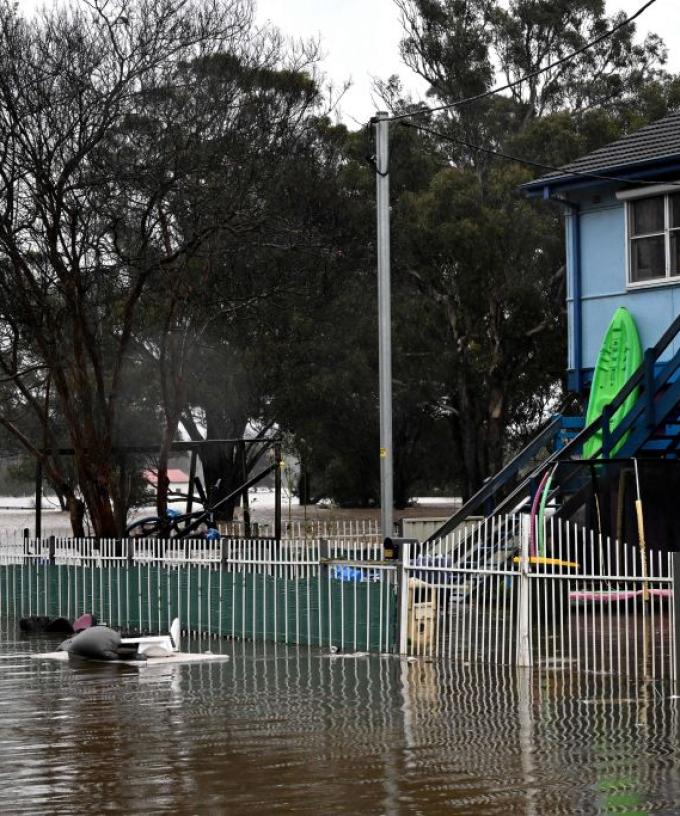The rains may be receding in NSW, but the threat of flooding and landslips remains, with tens of thousands of residents still under evacuation orders.
About 700 NSW residents called for help overnight as flood waters rose and heavy rain lashed the state’s Hunter and mid-North Coast regions.
Authorities are looking at winding back evacuation orders and warnings in some communities.
But State Emergency Service chief superintendent Ashley Sullivan said 40,000 people remain under the 69 evacuation orders still in place.
“There’s a lot of risk out there and it is not over yet,” he told the Seven Network on Friday morning.
“We have a few days, if not a few weeks, left.”
Heavy rains may have subsided to the relief of thousands of NSW residents but severe flooding still poses risks in saturated catchments.
Major flood warnings were in place for the lower Hunter River, Wollombi Brook and Tuggerah Lake late on Thursday, with the Bureau of Meteorology noting some parts of the Hunter had reached record levels.
The risk of landslips, trees toppling and flash flooding is still present following persistent heavy rain over several days across multiple regions.
Hazardous surf and marine wind warnings were also still in place for parts of the NSW coast.
The bureau said on Thursday major flooding was likely to occur at Maitland, in the lower Hunter, into Friday despite the rain clearing for much of the state.
Further south, the clean-up has already begun with Premier Dominic Perrottet and NSW Emergency Services Minister Steph Cooke visiting Camden, one of the areas worst affected in the latest flooding.
Financial relief for flood-affected communities has been extended to six additional local government areas, bringing the total of disaster-declared council regions to 29.
Federal Emergency Management Minister Murray Watt said the severe weather and flooding would continue to impact many areas of NSW, with numerous evacuation orders still in place.
“The flood waters may be receding in some areas, but we know there are other regions that are still at the emergency stage, where the focus will be on keeping our communities safe,” he said.
Ms Cooke said significant recovery support would be needed to help flood victims get back on their feet.
“Declaring a natural disaster is an essential first step towards getting a range of support out the door and in the pockets of individuals, families, farmers and business owners,” she said.







